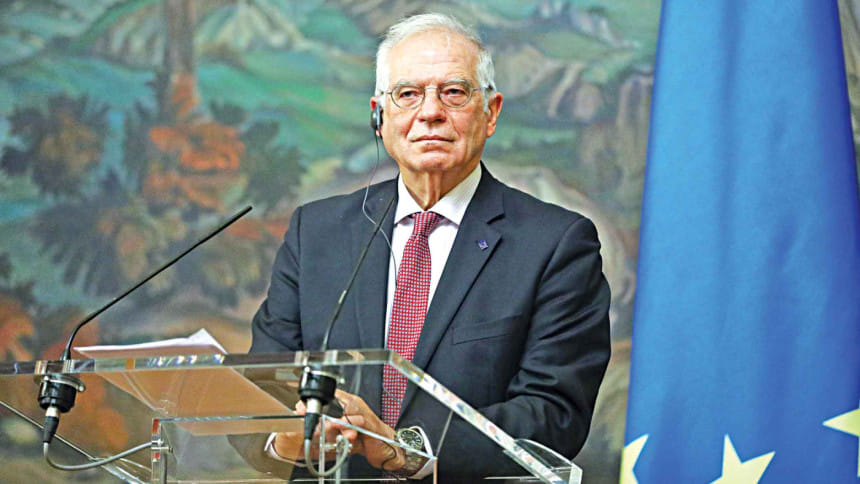EU’s Borrell backs dialogue with Russia

The European Union's top diplomat defended his controversial trip to Russia, adding that European diplomats had been in contact with lawyers of jailed Kremlin critic Alexei Navalny.
Europe has fiercely condemned a Russian court's decision this week to jail the 44-year-old anti-corruption campaigner for nearly three years, and a crackdown on pro-Navalny protesters that has seen more than 10,000 people arrested in recent weeks.
Amid the outrage over Navalny, the visit by Josep Borrell divided EU member states, but the former Spanish foreign minister insisted that dialogue with Russia must be maintained despite the acrimony.
"Diplomatic channels need to remain open, not only to de-escalate crises or incidents, but to hold direct exchanges, deliver firm and frank messages, all the more so when relations are far from satisfactory," he said.
The strategy was put to the test, however, when Moscow expelled diplomats from Poland, Germany and Sweden during his visit and just hours after Borrell met with Russian Foreign Minister Sergei Lavrov to discuss ties.
Russia accused them of attending "illegal protests" on January 23 in support of Navalny.
Borrell said he would debrief his trip to foreign ministers from the 27 member states on February 22 and that EU leaders would discuss their strained ties with Moscow at a summit in March.

 For all latest news, follow The Daily Star's Google News channel.
For all latest news, follow The Daily Star's Google News channel. 



Comments